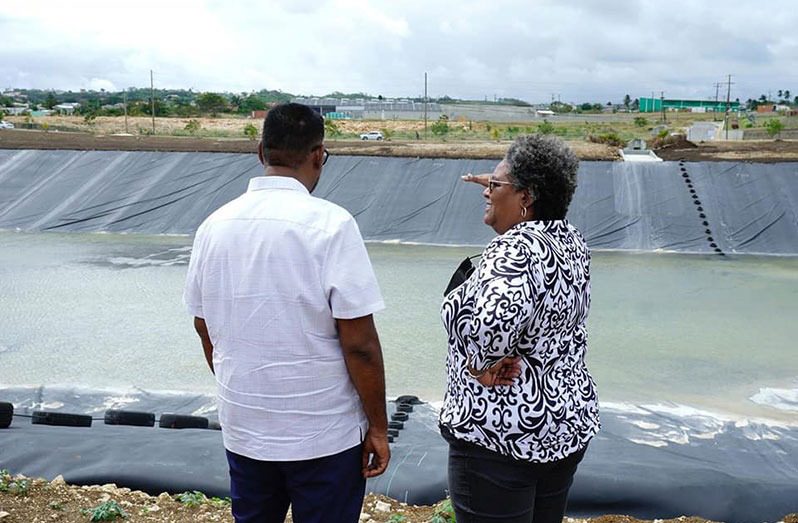WITH most of the preliminary works almost completed, construction of the highly-anticipated Guyana, Barbados food terminal will soon commence, Agriculture Minister Zulfikar Mustapha said.
Mustapha, in an invited comment, said that technical officers from both Guyana and Barbados are on the ground, and are working assiduously on the project.
“The land has been identified, the visit has been made, there were some changes to the plan, but those have been resolved, and we will see the construction of the food terminal starting very soon. The preparatory works for the land site have commenced already, so it’s a matter of time now for the physical work for the food terminal itself to start now,” Minister Mustapha said.
When completed, the food terminal will be able to store more than 40 containers of food, and will also be equipped with a processing and packaging plant. It will also provide cold storage facilities for seafood, packaging and processing plants.
The area will also have a large reservoir for water storage, and land set aside for crop production.
Given the projected impact of the terminal in promoting innovation and expanding the reach of Guyana and Barbados’ agriculture sectors, the project is expected to be replicated in other parts of the Caribbean region.
President Dr. Irfaan Ali and Prime Minister of Barbados Mia Mottley in July 2022 had signed an updated and augmented copy of the Saint Barnabas Accord, thus paving the way for the two countries to further dialogue on nine specific areas of interest.
These areas included agriculture, aquaculture and food security; mining and quarrying; tourism and international transport; trade and business development; energy; manufacturing; education – technical and vocational training and capacity building; cooperation in security; and bilateral integration measures.
Further collaborations are currently ongoing between the two Caribbean Community (CARICOM) nations to reduce the region’s hefty food import bill by 25 per cent by the year 2025.
Collaboration, Minister Mustapha said, has been a top priority of governments in the region for achieving the ambitious target.
“We are helping them to start their shrimp industry over there; we already sent technical officers, and they are now buying the equipment so that they can build the bond,” he said, adding:
“…We have also helped them with shade houses, and also with a number of root crops, such as cassava and dasheen, so there is a lot of collaboration happening.”
Another team visited the island some time ago, as Guyana continues to build relations in agriculture with the eastern-most CARICOM member state. Students from the Guyana School of Agriculture (GSA) have also visited the island.
Barbados is also currently assisting Guyana with its ongoing Black Belly Sheep project, the objective of which is to advance production within the country’s livestock industry.
Minister Mustapha further noted that CARICOM is currently looking to Guyana for leadership in agricultural innovation, and will adopt not only the ‘Jagdeo Initiative’ for removing constraints to the development of agriculture in the Caribbean, but also the strategies outlined for food security by President Dr. Irfaan Ali.
According to Minister Mustapha, CARICOM has become more cognisant of the importance of enhancing its agri-food system, and finding solutions to the constraints and barriers the region is facing in its production chain.
Meanwhile, President Ali has come in for high praise from various CARICOM leaders for his efforts and plans to transform agriculture in the region.
Guyana’s Head-of-State holds the responsibility for Agriculture, Agricultural Diversification and Food Security in the CARICOM quasi-Cabinet. At the 33rd Inter-Sessional Meeting of the Conference of Heads of Government of CARICOM in Belize earlier this year, President Ali outlined an action-oriented and solution-based proposal aimed at reducing the region’s food-importation bill by 25 per cent by 2025.
There, the President addressed each country’s report of current and target commodities to achieve the 25 per cent reduction by 2025, and detailed where the constraints existed and where action could be taken.




.jpg)










